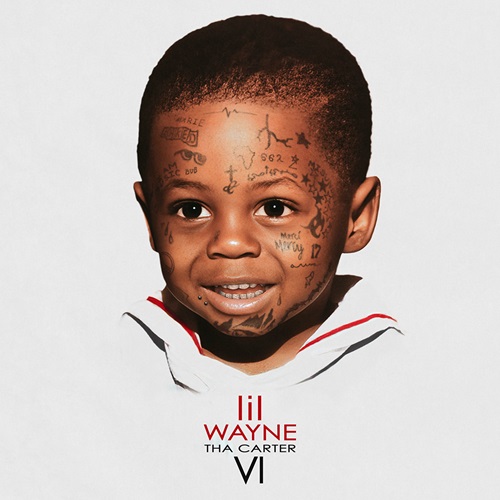It feels beyond strange to write that the best song on an entire Lil Wayne album is one dominated by a hook from Jelly Roll and a verse from Big Sean. That’s simply how it’s turned out on “Tha Carter VI”, however, as Wayne – one of the most popular and revered Hip-Hop artists of our modern era – has dropped an album that feels more akin to an oddly shaped misfire of a satirical take than it does the latest installation of an ultra-successful series of rap albums.
Unfortunately, this newest “Carter” is no joke or charade. Rather, it’s what Wayne appears to have left in the tank – both in terms of rapping prowess and, perhaps most obviously, stylistic sonic design.
The New Orleans native has maintained, and in a way perhaps slightly improved, some aspects of his repertoire, most notably his more structured arrangement of syllables and overall rhyme schemes. This can be heard across “Tha Carter VI”, though I’ve struggled to identify a strong example of this in any one particular song or verse. Instead, it feels like a slight wave that washes over this album and certainly a positive one.
Nevertheless, any such progression is easily outdone for the worst as the overall presentation, presence and beat selection throughout nearly this entire album come across as majorly confused and poorly thought out. It’s actually difficult to imagine what in the actual hell misled Wayne’s artistry and musicality in such an intensely weak and disappointing direction.
I mean, seriously, a Weezer cover? An Andre Bouccelli sample (and one not all used creatively at that)? I mean damn, even the sound of an elephant noise is a central component on one track titled, “Peanuts 2 N Elephant”.
And again, not to diss Jelly Roll – the man’s rise to pop stardom is impressive – but when I’m listening through an album from a world-renowned rap artist such as Lil Wayne, I should hardly be waiting helplessly for the part where one of the commentators from ‘American Idol’ comes on and sings a generic, uninspired hook about snakes not always being in the grass and sharks not always being in the water.
Nor should I be finding relief in a verse from a subpar rapper (Big Sean) who has been known for lines such as, “I guess when your stars align you do like the solar system and plan it out.” But to that point, it’s not like Wayne himself is any shorter than usual on delivering several of the more annoying and often cringy lines that have long haunted his lyrical approach to the point of becoming a signature staple in his music.
That’s the thing about this album, though. It provides 18 tracks, yet I can’t say that I’ll be going back to listen to a single one of them. That may seem harsh, but it’s the simple truth. What’s more interesting to me, however, is the fact that so many rap fans are surprised that this album is… well, drastically lousy. And to be frank, if it isn’t already apparent, I’m essentially as surprised as the rest of them.
Realistically, however, none of us should be so up in arms by the excessively lackluster nature of this album, as its two most recent predecessors, “Tha Carter IV” and “Tha Carter V”, weren’t particularly impressive either. It’s been a gradual slide downward ever since “Tha Carter III”, an album that is considered by many to be the best of the entire series and an overall rap landmark in its own way.
That being said, every time I listen to a song from this new project, whether it be “Bells”, or the Bono-aided and uninspiring “The Days” (or really any of the other songs), it shouldn’t come as a shock to me (or you) that it really, really sucks.
There’s a school of thought that seems to ardently believe in the retirement of MCs at this type of juncture in their artistic careers, but I can’t say I really agree with them. Even Eminem, another once-legendary rapper who’s since fallen off (harder than many of his fans are willing to admit) once said in his hit song “‘Till I Collapse” – “And when your run is over just admit that it’s at its end,” although he hasn’t exactly stuck to that advice in terms of his own legacy.
I can’t say I blame him, though, as I wouldn’t be so quick to adopt this philosophy either. Why must an artist stop creating and distributing their art, even if it has sunken deeply in quality? Why is quitting music – perhaps the rap game in particular – thought to be the thing to do when an artist has come down from their peak? I don’t believe there is any valid answer to this question, though it may stem from the common adage that Hip-Hop is a ‘young man’s game’. That, however, is a dated saying in more ways than one.

